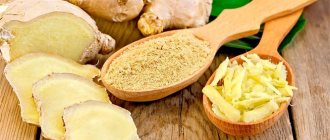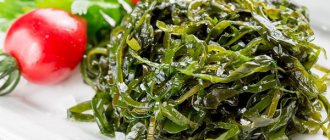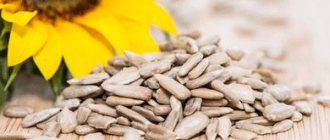Diseases of the gastrointestinal tract (gastritis, peptic ulcers, etc.) are pathologies, one of the main points of treatment of which is diet. In the initial stages of such pathologies, sometimes only diet contributes to a significant improvement in a person’s condition. In most well-known diets, fruit prohibitions concern sour or hard fruits, as well as small-stone berries. But eating sweet and soft fruits is welcomed and even considered healthy. Are bananas good for gastritis? What is the opinion of gastroenterologists about this southern fruit?
What do gastroenterologists say about bananas?
The attitude of gastroenterologists towards banana is positive, since this fruit is not prohibited by any medical table. That is why, when asked whether it is possible to eat bananas with gastritis, any doctor who deals with gastrointestinal problems will answer in the affirmative.
The fruits contain so many useful substances that their effect on the gastric mucosa will not only not worsen the course of gastritis, but will also promote tissue regeneration and healing of emerging erosions.
Some researchers claim that these fruits reduce the activity of helicobacter pillory bacteria, which provoke the development of gastritis and stomach ulcers. And since gastritis is an inflammatory disease of the gastric mucosa, such effects of fruits can even be considered therapeutic.
Dessert for everyone – “Boats”
- To prepare the pear, wash it, cut it lengthwise into 2 parts, and remove the core with a tablespoon.
- Mix cottage cheese with honey and fill the fruits with it.
- Line a baking tray with baking paper, place the pears on it and bake for 10 minutes.
This simple dish has many advantages - it does not injure the stomach and retains all the useful components. Prepare quickly. Give it a try.
Is it allowed to use if you have gastritis?
True, a reservation should be made for people who tend to exaggerate the nutritional and medicinal value of fruits. The fact that banana fruits are not harmful for gastritis does not mean that a person can eat them all day long - for example, go on a banana diet. Yes, and there are still certain features of using this fruit. Let's consider the question of whether bananas are ok for gastritis, more broadly.
Slightly unripe bananas will be useful, as they contain special starch.
For diseases accompanied by high acidity
People suffering from gastritis often ask if they can eat bananas if they have gastritis with high acidity of gastric juice. The answer to this question is also positive, but requires clarification:
- These fruits should be eaten in moderation (no more than 800 g per day);
- It is advisable to eat the next portion 30 minutes before meals, so that the body has time to absorb all the beneficial components of the fruit before heavier food enters the stomach;
- After eating the fruit, you should not drink water or juice; any liquids dilute the gastric secretions, complicating the digestion process; it is better to drink them before eating the banana.
It is necessary to take into account the individual susceptibility of the body to these fruits and, if they provoke bloating or belching, then it is better to eat them 2 hours after eating.
For gastric erosion
Erosive gastritis, or stomach erosion, is also not an obstacle to eating sweet fruit if a person does not have individual intolerance. But even here you need to exercise moderation and not count on “banana treatment” for erosive gastritis.
Bananas are allowed for erosive gastritis, but they need to be eaten in portions and preferably separately from other food - that is, half an hour before or 2 hours after a meal.
It will take our body 30-40 minutes to digest this fruit, and within an hour it will be in the intestines. Therefore, we can answer the question in the affirmative, is it possible to eat bananas with stomach erosion. Another tip is to chew the fruit thoroughly, this will ease the work of your stomach and speed up the absorption of nutrients by your body.
In the atrophic form
Atrophic gastritis is considered a disease with a high risk of developing stomach cancer, so the diet for it must be strictly followed. Whether to eat bananas for atrophic gastritis is better to consult a doctor who is familiar with your problem and the extent of the disease in detail. Although most gastroenterologists see no reason to doubt whether bananas are okay for gastritis or not. For any form of inflammation of the gastric mucosa (gastritis), they are not contraindicated.
Section of the wall of the pyloric part of the stomach with atrophic gastritis
During exacerbation
Acute forms of gastric diseases, as a rule, are accompanied by such symptoms that patients do not even think about eating at this moment. But acute pain and dyspeptic disorders sooner or later pass, and then questions arise - what can the patient be fed, is it possible to eat bananas during an exacerbation of gastritis. Gastroenterologists say it is allowed, but after the attack of gastritis has subsided and little by little, chewing thoroughly. And under no circumstances should you drink it with any drinks. And also - preferably 2 hours after the main meal, and not immediately after eating.
Diet during an exacerbation
If complications arise or an exacerbation of a peptic ulcer occurs, the diet should be strictly followed. You need to eat often (6-7 times a day) in fist-sized portions. Foods that can negatively affect the digestive organs should be avoided. Food should be well ground or pureed, and be sure to maintain a comfortable temperature. Moreover, prolonged fasting with this disease also has a harmful effect on the diseased organ.
If you follow all the nutritional rules for this disease, a significant improvement will occur in a week. After this, you need to contact your doctor and adjust your medication intake and expand your menu.
Is it possible to eat banana fruit for other gastrointestinal diseases?
Stomach diseases are not limited to gastritis. Is it possible to eat bananas if you have a stomach ulcer? How will a stomach suffering from other pathologies react to eating these fruits?
For gastric ulcers
Ulcerations of the mucous membrane and muscular gastric layer are united by a common concept - ulcer. Is it possible to eat bananas if you have a stomach ulcer, because this disease does not tolerate neglect of treatment and diet and reacts sharply to their violation? Banana fruits can be called an indispensable product for patients suffering from stomach ulcers. These fruits have the ability to:
- has a detrimental effect on harmful bacteria;
- envelop the walls of the stomach with protective mucus produced in response to eating these fruits;
- do not irritate the gastric mucosa at all;
- promote the regeneration of damaged tissues.
These properties dispel all doubts regarding whether bananas can be eaten if you have a stomach ulcer. Not only is it possible, but it is also necessary.
For duodenal ulcer
The duodenum undergoes the same destructive processes as the stomach if it is exposed to the products of the bacterium helicobacter pylory and gastric secretion. For those who suffer from this disease, the relevant question is whether bananas are ok for duodenal ulcers. With this diagnosis, eating fruit affects the body in the same way as bananas for a stomach ulcer - they promote the release of protective mucus that envelops the walls of the stomach, improve intestinal motility, and normalize blood flow.
In which countries do bananas grow? How do red and dried bananas differ from regular yellow ones? How to properly store this fruit at home?
For pancreatitis and cholecystitis
Even such capricious organs as the pancreas and gall bladder do not resist when eating banana fruits. For these diseases, treatment table (diet) No. 5 is indicated, containing fairly strict food restrictions. However, these delicious fruits are not on the list of prohibited foods. On the contrary, they talk about the benefits of sweet, soft fruits, which simply should be chewed thoroughly. Perhaps this is the only warning for consuming this sweet for pancreatitis and cholecystitis - they should be eaten in small pieces and chewed thoroughly.
Wednesday
- Breakfast: low-fat cottage cheese pancakes, applesauce, weak tea.
- Snack: fruit salad with yogurt.
- Lunch: homemade noodle soup cooked in vegetable broth with the addition of finely chopped chicken fillet, mashed potatoes and steamed fish cakes.
- Snack: crackers and rose hip decoction.
- Dinner: chicken breast baked in foil, baked carrots, berry jelly.
- Late dinner: ryazhenka.
Thursday
- Breakfast: cottage cheese casserole, boiled egg, weak tea.
- Snack: baked apple with honey.
- Lunch: vegetable puree soup, baked potatoes with boiled lean beef.
- Snack: marshmallows with weak tea.
- Dinner: zucchini stew with chicken cutlets, berry compote.
- Late dinner: kefir.
Friday
- Breakfast: omelet, pastille, rosehip decoction.
- Snack: cottage cheese with banana.
- Lunch: pumpkin puree soup, pasta with homemade chicken sausages, weak tea.
- Snack: sweet apple, cracker.
- Dinner: mashed potatoes with duck breast.
- Late dinner: yogurt.
Saturday
- Breakfast: semolina porridge with apple with added butter, dry cookies, rose hip decoction.
- Snack: cottage cheese casserole.
- Lunch: noodle soup with chicken fillet, stewed vegetables, turkey meatballs.
- Snack: charlotte with apples, weak tea.
- Dinner: boiled rice with boiled pollock, weak tea.
- Late dinner: ryazhenka.
Sunday
- Breakfast: rice porridge with pumpkin, crackers, compote.
- Snack: baked apple.
- Lunch: squash puree soup, stewed beef with vegetables, apple compote.
- Snack: cottage cheese with banana.
- Dinner: steamed fish cutlets with boiled potatoes, jelly.
- Late dinner: kefir.
Is it recommended to eat fruits on an empty stomach (in the morning, on an empty stomach)?
Fruits containing large amounts of acids (vitamin C, etc.) are usually not allowed to be eaten by people with problems with the digestive system.
But banana pulp has a natural antacid (acid neutralizing) property, so these fruits are not only not prohibited for gastrointestinal pathologies, but are even highly recommended. How will your stomach behave if you feed it these fruits on an empty stomach? Can you eat bananas on an empty stomach or at night? This is truly a controversial issue in nutrition because the body's reaction can be unpredictable.
- Let's start with the fact that bananas have a high level of starch, and this is a carbohydrate that can cause increased gas formation and bloating, which is why those who suffer from flatulence should not eat bananas on an empty stomach.
- If a patient is predisposed to allergic reactions, the answer to the question of whether it is possible to eat bananas on an empty stomach is negative.
- Bananas have a mild laxative property, so you should not hope that this fruit can replace breakfast. It is better to eat it 20-30 minutes before breakfast, so that it is the first to enter the intestines and, using the properties of plant fiber, which is so rich, to carry along the remains of feces in the intestines.
The best thing to do when deciding whether you can eat bananas in the morning on an empty stomach is to consult with your doctor, who knows your concomitant diseases (predisposition to food allergies, dyspeptic disorders, etc.).
Beneficial features
The calorie content of pears is low and amounts to only 46 kcal per 100 grams. This feature makes the fruit attractive to overweight patients. The fruit takes about 40 minutes to digest in the stomach, which is important for gastritis.
The fruit contains:
- arbutin is a natural antibiotic that gives the fruit bactericidal properties;
- pectins and fiber - substances necessary for digestion;
- a large list of vitamins - A, K, group B, C, E, PP, folic acid, beta - carotene;
- various macro- and microelements - potassium, selenium, calcium, nickel, manganese, sulfur, iodine, fluorine, sodium.
The aromatic fruit successfully copes with pathogenic microbes, dissolves cholesterol plaques, and participates in hematopoietic processes. Pears relieve tension and eliminate depression, remove harmful substances from the body, and have a mild diuretic effect.
Interesting! Ancient doctors recommended the fruit as a remedy for nausea. Take note of this property of the fruit, because with gastritis the symptom often occurs.
The fruits of the pear tree have astringent properties; they are indicated for normalizing intestinal function and eliminating diarrhea. This should be remembered, and if you are prone to constipation, you should still limit pears in your diet.
Basic principles of a balanced diet
A nutritionist will help you plan your diet correctly.
The main condition for good health with an ulcer is a balanced diet.
Fruits are needed, but we must not forget about moderation and the consumption of animal proteins. In their absence, it is not difficult to drive yourself to exhaustion. After all, proteins are the main building material for cells.
It is advisable to consult a doctor - a nutritionist who can competently create a diet for a patient with an ulcer. All healthy foods must be balanced. They must be skillfully combined in the right quantity.
It is necessary to adhere to the recommendations of experts related to the time of day that is optimal for eating fruits. For example, you shouldn’t eat them during the day.
Best in the mornings and evenings, combined with meat or fish. Fruits can be included in light snacks. In any case, we must remember that baked fruits will bring more benefits than fresh ones. People with ulcers should always remember this.
Causes of ulcers
Improper nutrition can provoke an inflammatory process.
There are many causes of ulcers, which is why it is quite difficult to treat.
Indeed, for a successful result, it is necessary not only to relieve pain and relieve inflammation, it is necessary to eliminate all factors that provoke the inflammatory process. They can be like this:
- uncontrolled reproduction of Helicobacter pylori bacteria that have entered the body;
- side effects of medications taken in large quantities;
- being under stress;
- poor nutrition;
- alcohol in large quantities;
- smoking, other factors.
Researchers have found that people with blood type I (0) are at risk of ulcers. If we analyze the spread of the disease by gender, then it must be said that in men the ulcer appears more often.
The most important reason for the development of ulcers is considered to be infection by Helicobacter pylori; these bacteria are found in all patients with ulcers and gastritis. So for successful healing, effective antibacterial therapy is necessary. Today, research is underway to develop such an effective remedy.
Cooking and cleaning rules
Ripe fruits can be visually distinguished from unripe ones. When purchasing, it is important to pay attention to the appearance of the pineapple. It should be smooth and elastic to the touch. The presence of deformations, cracks and darkening of the peel is unacceptable.
Pineapple needs to be cleaned properly. To do this, first cut off the top. The lower part is removed so that the fruit stands stably on a flat surface (board, countertop). The peel is removed vertically, from the tops to the base. Use a knife to clean off excess.
An easier way to peel fruit:
- cut it into 4 parts;
- cut out the core with a knife.
Eat pineapple for inflammation of the mucous membrane in small portions. The daily dose is divided into several doses. It is used to prepare a side dish, jam or filling for baked goods. Some dietary pineapple dishes for gastritis:
- Baked pineapple with poultry. 2 mugs of small diameter fruit must be peeled. Steam lean chicken or turkey fillet. Place both ingredients in a refractory dish, sprinkle with grated cheese (in a small amount). Bake for 30 minutes.
- Fruit salad. Avocado, pineapple and apple, taken in equal quantities, cut into cubes. Season the ingredients with low-fat yogurt (2 tbsp).
Pineapple is also served as a side dish in fish and meat dishes.
Features of consuming persimmons
Persimmon is one of the fruits that ulcer sufferers can eat without fear, because the amount of fruit acids in it is negligible. At the same time, persimmon is capable of destroying dangerous microbes; it saturates the body with potassium, iron, and copper.
The only limitation is to exclude unripe fruits. They contain too many binders. The most useful are considered to be unpollinated persimmons, which can be recognized by the absence of seeds and light pulp.











